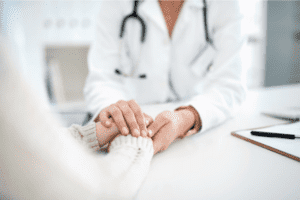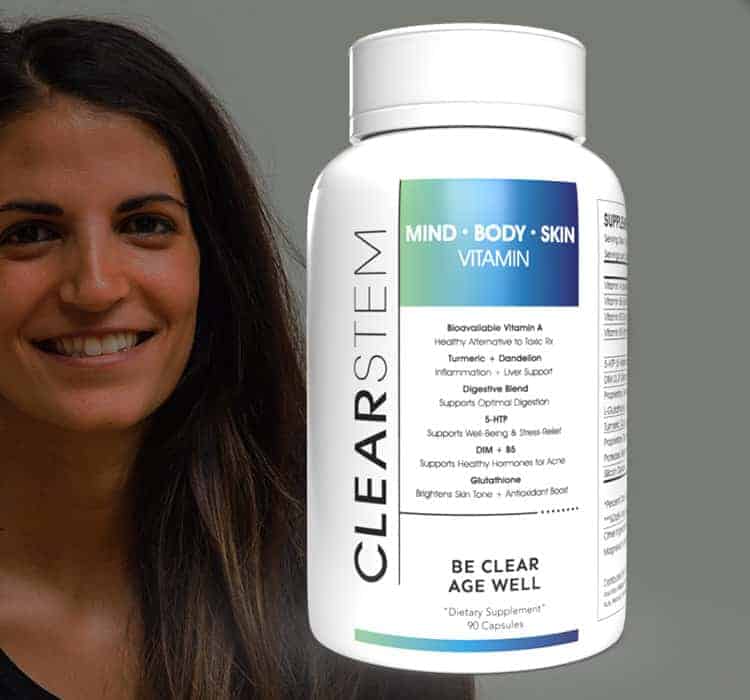A lot of women suffer from acne during pregnancy, but some may also notice breakouts after they deliver. This is due to an increase in hormone levels which leads to increased oil production and clogged pores.
Acne can be further aggravated by stress, hormonal changes, certain medications (including antidepressants), or a poor diet.
There are many different treatments for acne available on the market today; however, if you are suffering from postpartum acne, it is essential to consult with your doctor before using any new products or treatments. Here is how you can get rid of acne after miscarriage!
6 Ways To Combat Acne After a Miscarriage
1: Start With a Clean Skincare Routine
To get rid of acne, you need to get rid of excess oil and clogged pores. If your skin is very oily or you have blackheads, try over-the-counter products that contain benzoyl peroxide. It is a great way to kill bacteria and unclog pores at the same time.
You can also use salicylic acid (in cleansers and spot treatments) for similar results without drying out your skin as BP does.
After several weeks, if these do not work, see a dermatologist for prescription treatment options such as topical retinoids. They are stronger than OTC but less harsh on sensitive postpartum skin.
2: Get Plenty of Rest
Getting enough sleep after a miscarriage is a great way to reduce stress levels and affect the severity of acne flare-ups you experience. For example, lack of sleep can cause an increase in stress hormones which may trigger acne breakouts.
You should get at least eight hours of rest every night to help your body recover from the day’s activities and prepare for tomorrow.
If you have trouble sleeping, try using relaxation techniques before bed, such as meditation or yoga. You might also want to limit your caffeine intake after lunch since many people find it interferes with their ability to fall asleep easily.
3: Drink Lots of Water
You should drink at least eight glasses of water each day to flush out toxins in your system. Toxins are the primary cause of acne and could be more prevalent after a miscarriage.
This will also help to keep your skin hydrated and moisturized. Water plays a significant role in balancing the oil levels of your skin.
This is because if you are dehydrated, then there will be less water to moisturize your skin. If you drink lots of water each day for a few months, it might help cure acne completely.
4: Get Enough Antioxidants
Antioxidants help fight free radicals, which can damage cells and cause skin inflammation associated with blemishes, including pimples, whiteheads, blackheads, etcetera.
You should take Vitamin A & E supplements as they have antioxidant properties helping them reduce the size of pores on your face making it harder for dirt particles to accumulate inside pores, causing breakouts.
These vitamins will also enhance blood flow towards the surface of your skin, allowing faster cell turnover meaning dead skin cells do not build up underneath, leading to outbreaks.
5: Eat Healthy Food
After a miscarriage, skin blemishes often appear on the face and chest; acne is one of them. The nutrients found in fruits and vegetables help nourish the body, leading to better overall health benefits, including clearing up blemishes after having a miscarriage.
Following a miscarriage, eating healthy food will provide you with essential vitamins for physical and emotional well-being. The best diet for hormonal acne includes lots of fish, leafy greens, and lean protein.
Drinking alcohol and eating processed sugary foods are the worst possible thing you can do if you have hormonal acne. Eating either of these is extremely likely to trigger more severe acne breakouts and keep you feeling exhausted.
6: Recommended Supplements For Hormonal Acne
Supplements will not make a difference in hormonal acne if you have a poor diet, are dehydrated, or are not getting enough sleep.
However, if you are eating clean and prioritizing sleep, supplementation can help clear your skin and improve your mood more quickly.
This includes vitamin C, which assists with collagen synthesis, and Vitamin A which has anti-inflammatory properties. Both of these vitamins also act as an antihistamine helping prevent further breakouts from occurring.
Additionally, Biotin (vitamin H) can help restore balance within your hormones.
Zinc works together with copper minimizing scarring and hyperpigmentation along with soothing inflamed tissue, Vitamin E has antioxidant properties which scavenge free radicals that are caused by emotional stress.
Every close friend of mine who has gone through a miscarriage has dealt with some form of acne. For some women, the acne will dissipate in 2-3 weeks. For others, it can last months. If you find that you are dealing with particularly bad breakouts and other symptoms of hormonal imbalances sometimes supplementation can make sense. During my most recent miscarriage, I used Clearstem Skincare’s hormonal acne supplement.
Clearstem’s hormonal acne supplement is made of all-natural ingredients like vitamin a, DIM for hormonal management, B5, and turmeric. It is designed to balance your hormones and boost your immunity without using any lab-made ingredients. In addition to helping calm my acne I also noticed less bloating and more energy when I typically felt exhausted during the entire day.
This supplement should not be taken if you are pregnant or breastfeeding but an extremely high success rate with women who are doing all of the above suggestions and still struggling with acne.
Takeaway
The takeaway here is acne after a miscarriage can be complicated. If you are experiencing this, making the correct change in your lifestyle and diet can be very helpful.
Also, remember to consult your doctor to rule out any other possible problems. You should also consult a dermatologist to get the best results regarding getting rid of acne after miscarriage.
Frequently Asked Questions
After a miscarriage, many women experience hormonal changes. If you were on birth control pills and had a miscarriage, consider staying off them for at least one month before trying to conceive again so the hormones can go back to normal levels.
Avoid refined sugars or flours as they increase your body’s insulin levels, resulting in excess oil production, causing breakouts around the mouth, chin, forehead, etc. Other foods to eliminate are dairy products such as milk and cheese because it has been found calcium may lead.
Yes, miscarriage can lead to an acne breakout. After a miscarriage, hormone levels in the body will be out of balance for a while, which is one cause of breakouts after miscarriage.


